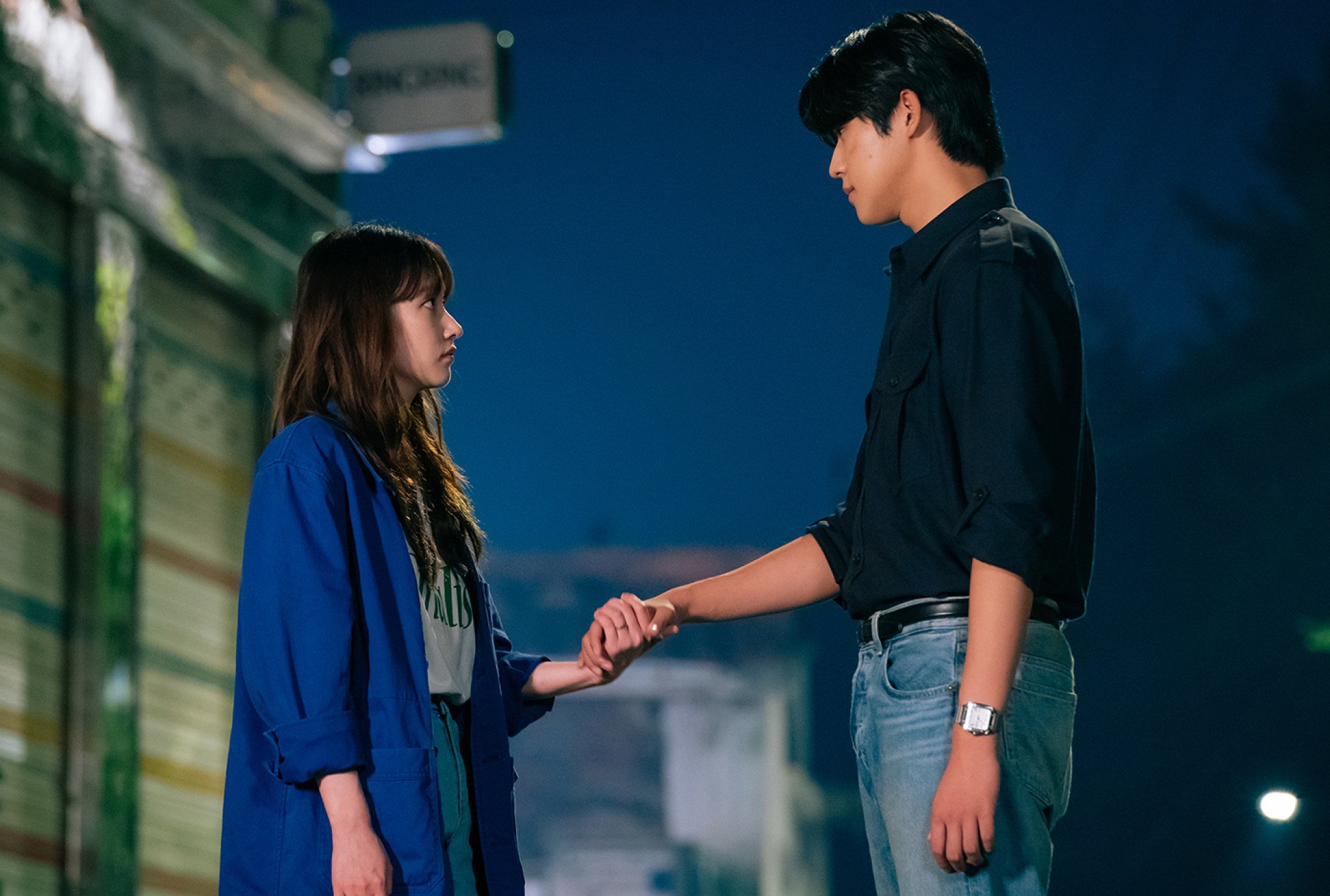
Review | Amazon Prime K-drama review: Wedding Impossible – Jeon Jong-seo, Moon Sang-min in romantic drama spoiled by tired clichés
- Jeon Jong-seo plays the female friend of a gay corporate heir who proposes a fake marriage, only for her to fall for his brother, played by Moon Sang-min
- The queer themes are quickly sidelined and feel performative as the story meanders, full of clunky clichés, to an unsatisfying ending
This article contains spoilers.
2/5 stars
Lead cast: Jeon Jong-seo, Moon Sang-min, Kim Do-wan
Latest Nielsen rating: 3.7 per cent
The romantic comedy Wedding Impossible, led by Jeon Jong-seo and Moon Sang-min, opened with an intriguing premise built around the predicament faced by a queer corporate heir.
That heir is Lee Do-han (Kim Do-wan), grandson of the founder of LJ Group, a chaebol (family-run corporation), who proposes a fake marriage to his struggling actress friend Na A-jeong, played by Jeon. However, she ends up falling in love with Do-han’s brother Lee Ji-han, played by Moon.
Wedding Impossible midseason recap: a tangled romantic triangle
The relationship between A-jeong and Ji-han – initially confrontational, as Ji-han doesn’t want her to marry his beloved older brother – quickly takes over the narrative and relegates to the background the queer theme that had been front and centre.
Since this is a traditional Korean romantic drama, this was, to some extent, to be expected. Yet the degree to which Do-han’s sexuality becomes an afterthought makes the show’s queer representation feel particularly performative.
For several years, Korean dramas have been experimenting with the inclusion of queer characters. They are never the leads and their queerness is always, at first, hidden, reflecting the conservative social values of the country the shows are made in.

Even more disappointing is how the stigma of queerness is represented. Do-han, who doesn’t want to be the chairman of the LJ Group, isn’t the one who is negatively affected. The people who suffer from his queerness are A-jeong and Ji-han, who sacrifice themselves to protect him.

At the end of the series Do-han finally steps up and comes out publicly, not to be accepted by his family or society but to save the show’s lead heterosexual characters.
We know this because A-jeong tells Do-han that he didn’t come out for himself but for them. Perhaps the show felt this was an act of self-sacrifice on Do-han’s part, but what it does is once again rob him of agency as a character.
He then leaves the country, his family and his friends, to be an artist overseas. Rather than showing this as bittersweet, the script suggests it is a happy resolution for the character.
7 of the best new Korean drama series to watch in April 2024
Wedding Impossible employs a similarly half-baked narrative approach to most of its characters and scenarios.
The series includes corporate family infighting, dark family secrets, unrequited romances, and thwarted professional ambitions, but none of these elements are adequately fleshed out as the story increasingly meanders.
The revelation that the death of Ji-han’s mother was caused by his uncle, and that his chairman grandfather knew about it, is the kind of traumatic family secret around which K-dramas tend to build their conclusions, as lead characters overcome their backstories and gain the knowledge and confidence to find their way out of their present difficulties.
But this revelation has little impact on Wedding Impossible’s narrative and its main characters. It is little more than a tired cliché inserted to make the series look and feel like a classic chaebol Korean drama.

Many other the show’s other stereotypes are even more blatant.
At several points, characters exclaim that they are engaging in classic drama clichés, such as when A-jeong and Ji-han end up having to share a room during their obligatory countryside getaway in episode nine.
In the same episode, A-jeong’s relatives complain about the actions of drama characters they’re watching on TV, whose situations mirror the ones of the show we are watching.
Rather than being cute and clever, these scenes feel clunky, particularly as the show does such a half-hearted job of recycling these stereotypes.

Once all the secrets are out in the open, the leads separate and the show jumps forward a year for the final episode. The characters all meet again and there is much talk, although little evidence, of how everyone has grown in the interim.
There’s no big romantic flourish as A-jeong and Ji-han get back together, and the show ends on a shallow and unsatisfying note, the frothy fun of its early episodes by now a distant memory.
Wedding Impossible is streaming on Amazon Prime.

